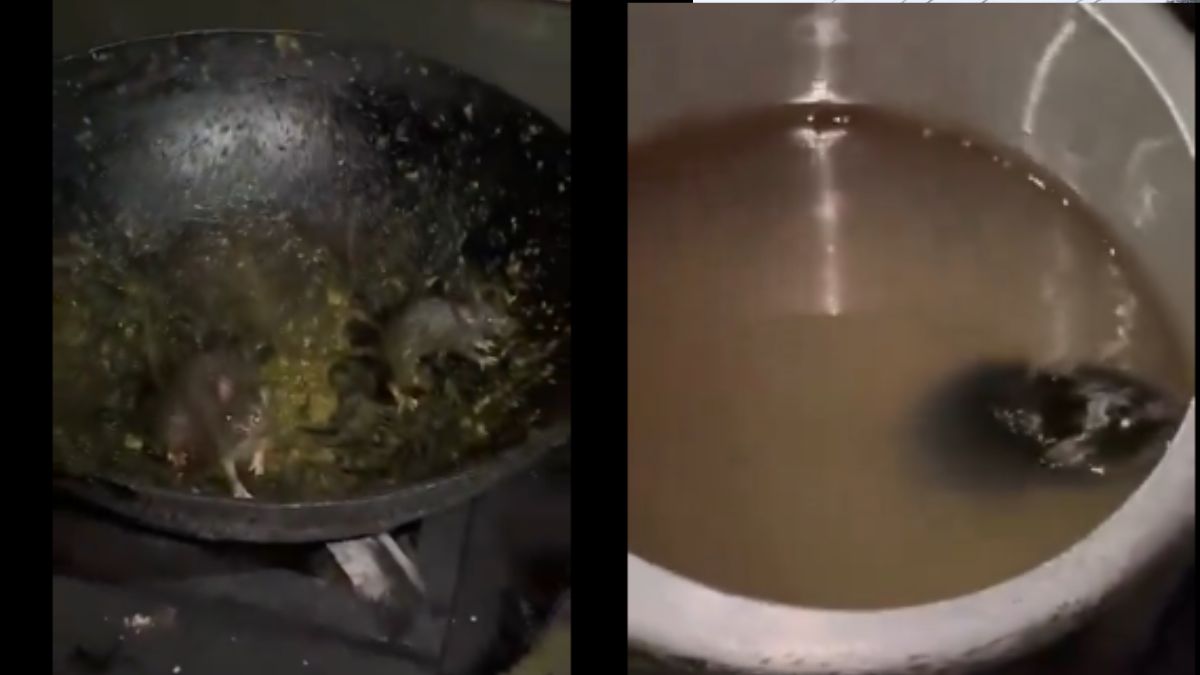The discovery of rats in the food being prepared at the Radha-Krishna Bhawan mess at IIT Roorkee sparked outrage and highlighted serious concerns about hygiene and food safety standards at the prestigious institute. Videos and images of the incident, showing rodents in cooking vessels containing rice and vegetables, quickly circulated on social media, fueling student protests and raising questions about the institution’s responsibility for the well-being of its students. The incident, which occurred during the lunch preparation on a Thursday, exposed a blatant disregard for basic food safety protocols and ignited a heated confrontation between students and mess staff. This event underscores the urgent need for improved oversight and stricter adherence to hygiene standards in all institutional food service facilities. The ensuing uproar serves as a critical wake-up call, demanding a comprehensive review of food handling procedures and a commitment to ensuring the safety and health of the student body.
Rat Infestation at IIT Roorkee Mess: A Public Health Hazard
The Incident and its Fallout
The incident unfolded during the lunchtime rush at Radha-Krishna Bhawan mess. Students, upon witnessing rats in the cooking vessels, immediately captured the disturbing scene on video and photographs. These images, rapidly disseminated across social media platforms, revealed rats both in the rice and vegetable cookers. This shocking discovery sparked immediate and widespread outrage amongst students. Beyond the immediate disgust, the incident prompted a serious concern for potential health consequences. The students, many of whom had already consumed food from the mess, expressed anxieties about possible foodborne illnesses. The incident also fueled a larger conversation about food safety standards not just at IIT Roorkee, but across similar institutional settings.
Student Protests and Demands for Accountability
The discovery ignited furious protests from students who voiced their frustration and anger over the unacceptable hygiene conditions. They argued that such negligence put their health at considerable risk and was unacceptable at an institution with IIT Roorkee’s national reputation. The protest escalated, involving a significant number of students demanding immediate action. Their calls for accountability went beyond just addressing the immediate issue; they highlighted a systemic failure in maintaining basic food hygiene standards within the mess. Students insisted on stricter monitoring of food preparation procedures, regular inspections and improved cleanliness practices in the mess kitchen. This incident raised serious concerns about the overall oversight of food safety protocols and the well-being of students entrusted to the institution’s care.
IIT Roorkee’s Response and the Need for Reform
Immediate Actions Taken (or Lack Thereof)
The details surrounding IIT Roorkee’s immediate response to the incident remain largely unverified. However, accounts suggest there were heated arguments between students and mess staff as students demanded explanation and remediation. There is a lack of clarity on whether and what immediate steps the institute took to address the issues raised by the students, investigate the root cause of the rat infestation, or to ensure the situation did not recur. The absence of clear, transparent communication regarding these actions fueled the public’s dissatisfaction and strengthened demands for transparency and accountability.
Long-Term Solutions for Preventing Future Occurrences
The incident at the Radha-Krishna Bhawan mess serves as a stark reminder of the critical need for robust systems to prevent similar incidents in the future. Implementing stringent quality control measures, including regular inspections of food preparation areas, implementing pest control protocols, and ensuring rigorous training for mess staff on proper food hygiene practices, are paramount. The institution needs to conduct a comprehensive review of its current food handling procedures and kitchen facilities, invest in improved infrastructure, and strengthen its quality control measures to ensure compliance with the highest safety standards. This includes incorporating regular and independent hygiene audits and adopting a system of accountability where negligence results in tangible consequences. The establishment of clear and accessible complaint channels that guarantee students’ safety and voice in addressing similar concerns is also needed.
Impact and Broader Implications of the Incident
Erosion of Public Trust and Institutional Reputation
The incident has severely damaged the public’s perception of IIT Roorkee. This negative publicity has potentially impacted not just student enrollment, but the institution’s overall standing in the national education landscape. The ease with which the images of the rat-infested food went viral underlines the potentially damaging impact such incidents can have on an institution’s reputation. This damage goes beyond negative media coverage; it involves the erosion of public trust and the raising of serious questions about the institution’s commitment to providing a safe and healthy environment for its students.
Systemic Issues in Institutional Messes
The incident is not an isolated case; it highlights broader issues that plague numerous institutional mess facilities. Often these establishments operate with insufficient oversight, lacking both strict hygiene protocols and robust quality-control systems. The absence of consistent and rigorous adherence to food safety regulations across institutional dining settings could put students at risk. Addressing the specific IIT Roorkee incident necessitates a more systemic review of food service practices in all institutional contexts. These establishments should undergo mandatory audits to verify adherence to sanitation, food storage, and pest control standards, holding them accountable for neglecting student well-being and upholding public health norms.
Takeaway Points
- The incident at IIT Roorkee’s Radha-Krishna Bhawan mess exposed severe lapses in food safety and hygiene.
- Student protests highlighted concerns about the institution’s responsibility for student well-being.
- The event requires a comprehensive review of food handling procedures and improved accountability measures.
- The incident also underscores the systemic issue of inadequate food safety in many institutional messes across the nation.
- Implementing stringent quality control measures, robust pest control protocols, and transparent complaint mechanisms are essential.
- Restoration of public trust requires a firm commitment to improving hygiene standards and preventing future occurrences.




